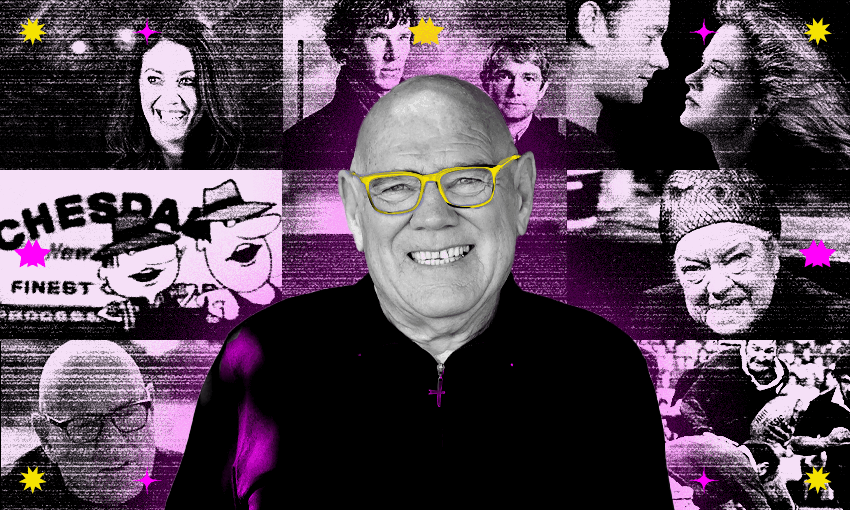Producer and director Rachel Currie talks to Tara Ward about the new season of her documentary series – and responds to criticisms from some within the disability community.
When Rachel Currie’s father had a stroke when she was 16, it set her on an unexpected path. Currie’s father asked her to film his rehabilitation, and as he struggled to get equitable care, she began to see the world differently. It inspired her to become a documentary maker, and over the last two decades, the former journalist has directed series like How Not To Get Cancer and The Big Ward, as well as producing content in the UK for BBC, ITV and Channel Four.
Now Currie is back with a second season of Unbreakable, the documentary series that follows disabled New Zealanders as they achieve an important ambition. In episode one we meet Jamie, who has Down’s Syndrome and dreams of being a hairdresser, and Cody, who suffered a spinal cord injury as a teenager and wants to start a family with his wife Jess. There’s also Jacqui, a mum born with pseudoachondroplasia who is launching her own business, and later episodes will feature Green MP Golriz Ghahraman, who has multiple sclerosis. Unbreakable follows their progress over six episodes, capturing their successes and setbacks along the way.
Rather than making a fast turnaround, entertainment-based series, Currie’s production team at Storymaker spent two years researching and finding people “about to embark on something really big”. They worked with 98 different organisations to find people willing to share their story on television, and Currie says it was critical that the contributors drove their own stories, rather than having specific dreams or goals imposed on them during the filming process.
Still, the series has not been without criticism from the disabled community, with Stuff’s Olivia Shivas arguing shows like Unbreakable become “inspiration porn” that overlook the greater systemic issues about disability and reinforce negative stereotypes. Shivas writes that while the show increases visibility and awareness of disabilities, Unbreakable is also “a shiny band-aid that glosses over the deep, infected wound of systemic disability discrimination”.
When asked about these criticisms, Currie maintains that Unbreakable is a disability-led production. Onscreen contributors from season one such as Mike Brown (Adaptdefy) and Gordon Cummings (Independence Collective) returned as script supervisors, with advocate Dr Huhana Hickey joining them for season two. Currie is pleased the the contributors trusted the show enough to work with Storymaker again.
The key to Unbreakable’s success, Currie says, is that it follows real, engaging people who would be trying to achieve their goals regardless of whether Unbreakable was filming them or not. “This is about the structures in society that would prevent a person with a disability from achieving what it is they want to do. It’s about access,” she says, adding that Unbreakable is full of challenges, and not everyone succeeds in reaching their goal. ”I think it would be really difficult to watch after six episodes and say, ‘it’s just an inspiring show’. It’s also depressing and heartbreaking, and frustrating and real. It’s warts-and-all.”
In sharing these stories on prime time television, Curries hopes Unbreakable will encourage viewers to think about society in new ways. “Maybe they’ve never considered what it might be like to have a spinal cord injury and want to have a baby, or to have extreme anxiety and want to pursue a dream of actually leaving the house and finding a meaningful job.” She also believes visibility is key to normalising disability and removing barriers. “You know, why can’t you be an MP, but have a chronic illness? Why can’t you take part in a five day [endurance] race, while in a wheelchair? There’s always an access issue. And that is, in our series, really obvious.”
Currie says it’s a privilege to be invited into the lives of those who feature in Unbreakable. “The thing is, we all have a responsibility. We’re all members of a society, and it’s easy to think, ‘Oh, structural and systemic issues are this big problem that is outside of our control’. To a large extent it is, but there’s always something that we can do, from your community to your school to your workplace.”
“You know, one in four people in New Zealand have a disability. It’s not unusual, it’s normal. It’s all around us.”
Unbreakable screens on TVNZ 1 on Tuesdays at 8.30pm and on TVNZ+.



